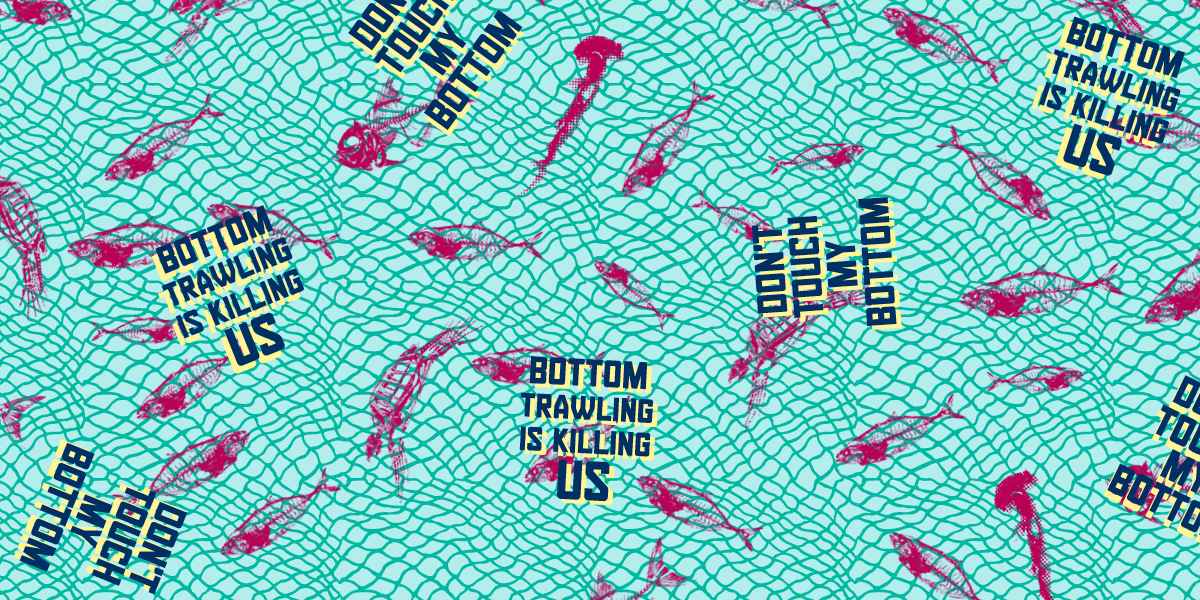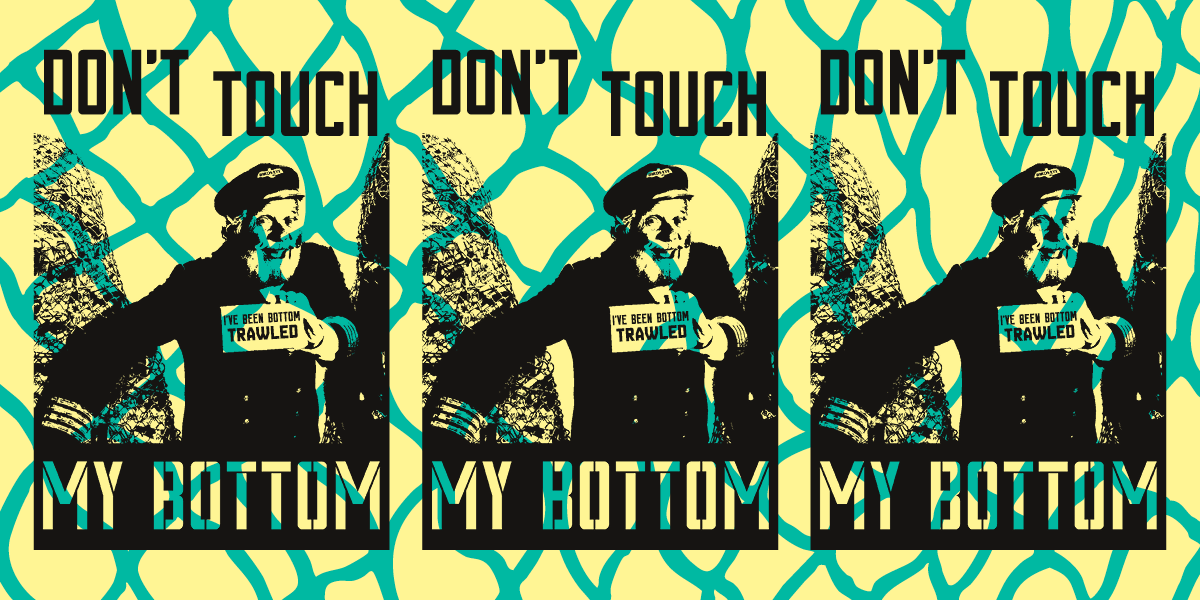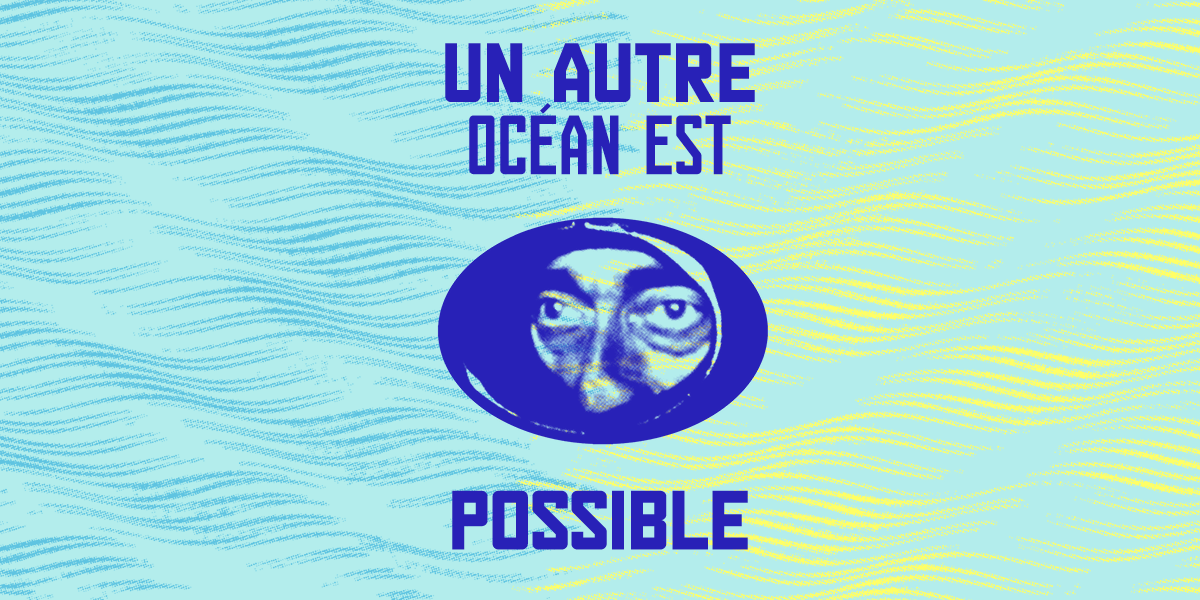Ocean Carnage
03.06.2025

⬆️ Digital detail of the world’s largest ever screen print. Ocean Rebellion will be revealing it during the UN Ocean Conference in Nice. Contact us for more information.
—
By Chris Armstrong, professor of political theory at the University of Southampton and the author of A Blue New Deal: Why We Need a New Politics for the Ocean and the forthcoming Global Justice and the Biodiversity Crisis: Conservation in a World of Inequality.
David Attenborough’s latest blockbuster, Ocean, is now appearing in cinemas worldwide. The film focuses on the carnage that industrial fishing is wreaking in the ocean, and it captures it in a pretty hard-hitting way. The middle section of the film, which follows the beam of a bottom trawler as it demolishes everything on the seabed, is genuinely traumatic to watch. In the cinema screening I attended, there was a stunned silence. Even though I already knew about the effects of bottom trawling, those sequences are unforgettable.
It is hard to imagine a more compelling visual demonstration of the harm we are doing to the planet. For that reason, the more people who see the film, the better. There is the chance the film could spark a wider democratic discussion about practices like bottom trawling (the film also depicts scallop dredging, which is more modest in scale but similarly destructive).
The film is also to be applauded for its explicit discussion of the neocolonial fishing practices that are maiming the ocean, and impoverishing many coastal communities. There was also some effort to learn from indigenous and non-Western perspectives, in addition to the usual North Atlantic voices.

⬆️ Digitised poster artwork from Ocean Rebellion’s campaign against bottom trawling. Ocean Rebellion will be running a workshop at ‘La Baleine‘ between 10:00 – 15:00, 7 June, at UN Ocean Conference in Nice. Contact us for more information.
—
But there are stories that the film does not tell.
First off, the film does not get to the root of the problem: a highly destructive brand of capitalism. Attenborough notes that High Seas fishing is hugely destructive, and hugely subsidised. He does not ask WHY governments would pay loss-making companies to trash the environment. To see why, we need to understand the nature of rentier capitalism, and to see how policy-making has been captured by a narrow economic elite, so that ‘ocean policy’ has come to mean ‘fishing policy,’ and ‘fishing policy’ has come to mean delivering returns for the wealthiest of the wealthy. This is a story that Guy Standing has told clearly and well.
But the film does not really ‘do’ politics. It fits comfortably with the narrative that environmental destruction is a problem we can tackle through better science and better data. Science is very important, but solutions will by definition be political solutions. Progress will involve engaging with and challenging the institutions that have governed the ocean so badly to date. In the closing sections of the film, Attenborough approvingly discusses the United Nations goal of protecting 30 percent of the ocean by 2030. But it would have been appropriate here to note that all of the UN’s previous biodiversity targets have been missed, and that this is one is very likely to be missed too, by quite some distance. The current conservation model is just not working. Business as usual is dragging us towards ecological catastrophe.
The approach the film takes to climate change is also limited. Attenborough is keen to highlight the contribution that rebounding ecosystems could make to drawing down carbon. This is an important message. Likewise, he notes the terrible contribution bottom trawling makes to the climate, by stirring up huge amounts of carbon currently contained on the seabed (by some reckonings, the climate impact of bottom trawling is as big as that of global aviation – another reason it should be banned).

⬆️ ‘Another Ocean is Possible‘ Assembly at ‘La Base’, join us 11:00 – 13:00, 8 June, Nice. Contact us for more information.
—
But the film tends to give the impression that if only we could roll back industrial fishing, the ocean will rebound. The sections on coral reefs imply that, once industrial fishing is reduced, reef fish will come back and nibble away the algae that is enveloping many coral reefs.
This is only part of the picture, however. Although industrial fishing is a major problem, the biggest threat the coral reefs face is climate change. If we do not cut our emissions radically and quickly, the vast majority of the world’s tropical reefs will be dead, and soon. Industrial fishing matters, and is a major threat to life in the ocean and on the planet as a whole. But the ocean faces many threats, each of which needs concerted attention.
In short, the film does a great job of highlighting some of the problems the ocean faces, and some of the solutions. The imperative, though, is to create a lively and contestatory politics of the ocean, which challenges business as usual and offers a sense of what other futures are open to us. As Ocean Rebellion will be arguing at the UN Ocean Conference in Nice, “Another Ocean is Possible.” Getting there will involve not just more science, and more entrancing visuals, but more politics, more contestation, and more holding power to account. The politics of the ocean is failing, and we deserve better.
Ocean Rebellion will be attending UN Ocean Conference in Nice. If you want more information on what we’ll be doing CONTACT US